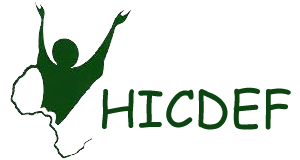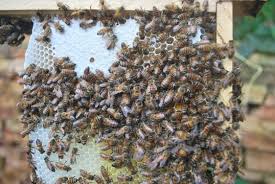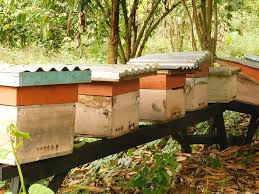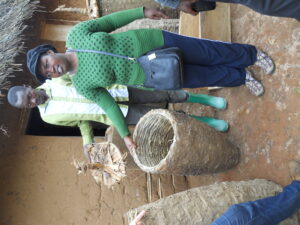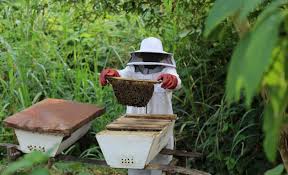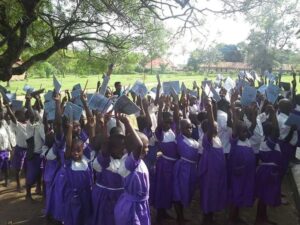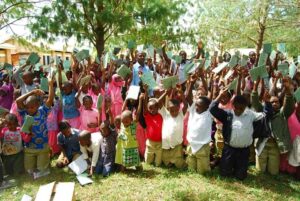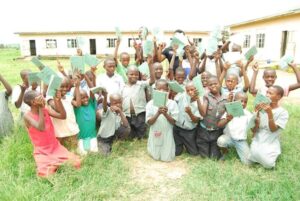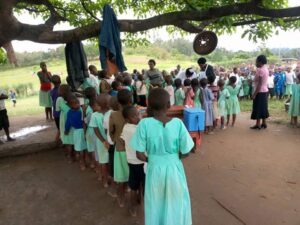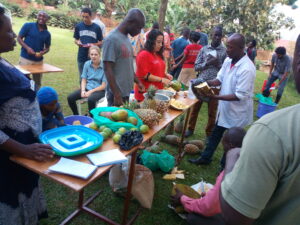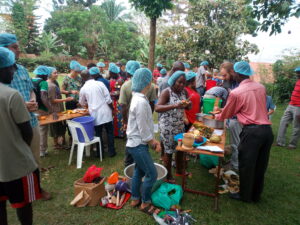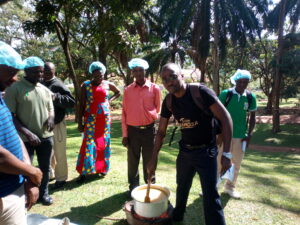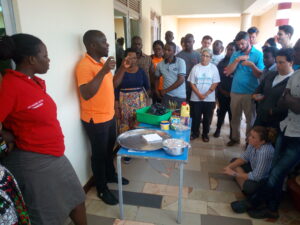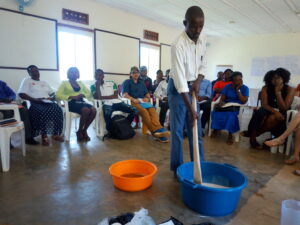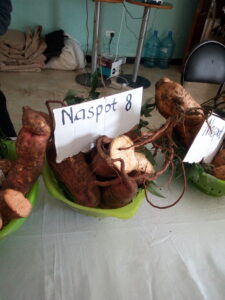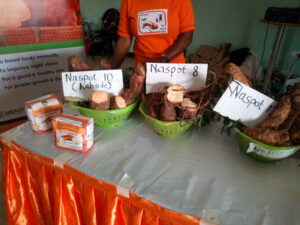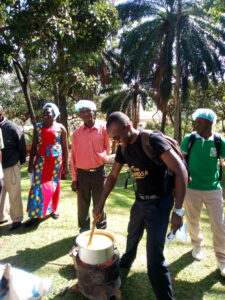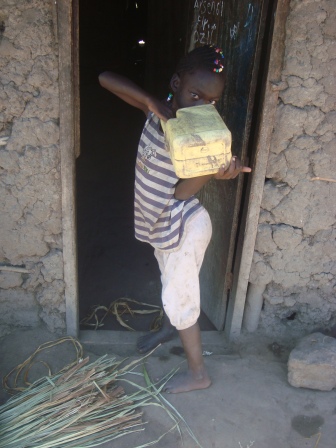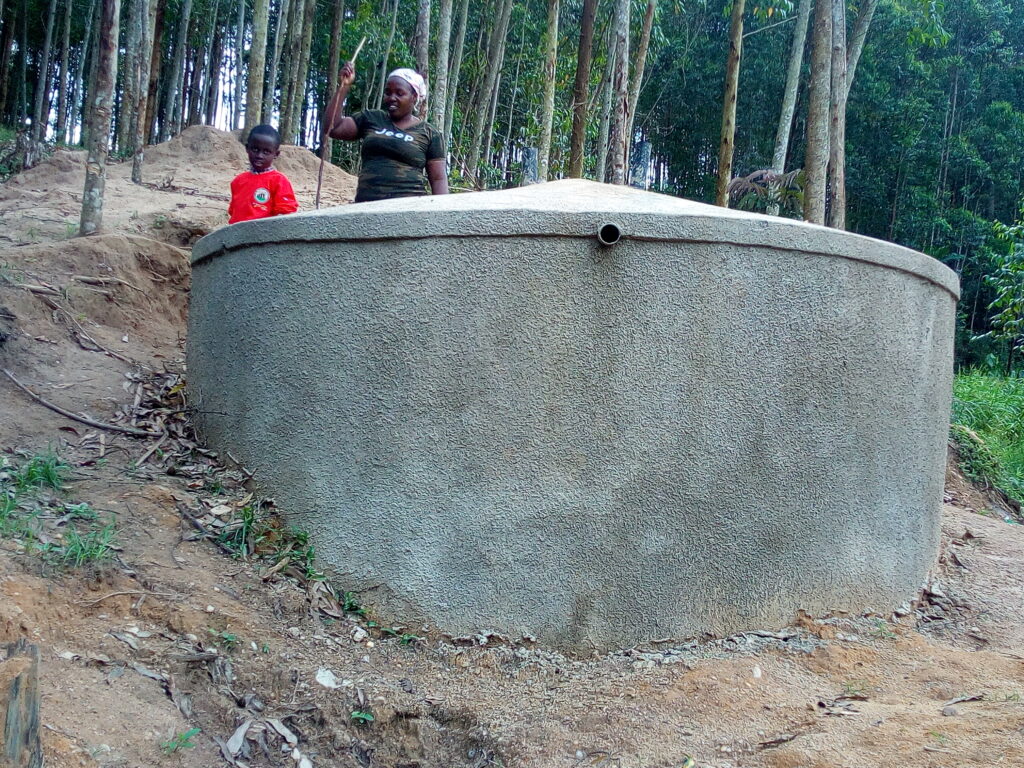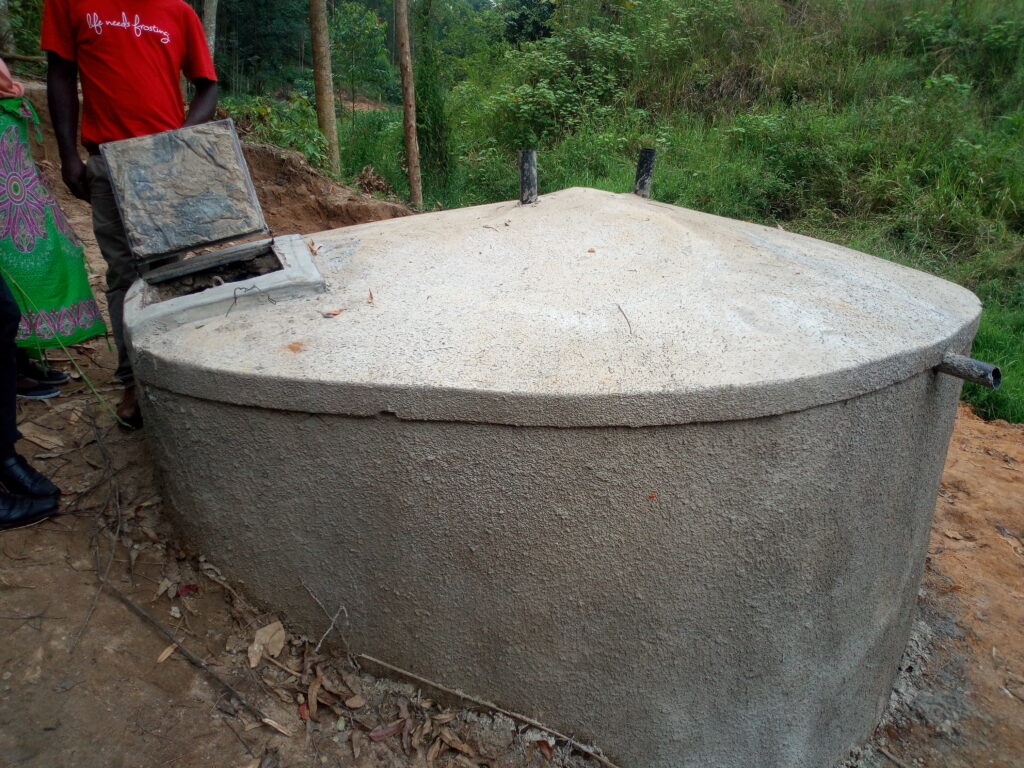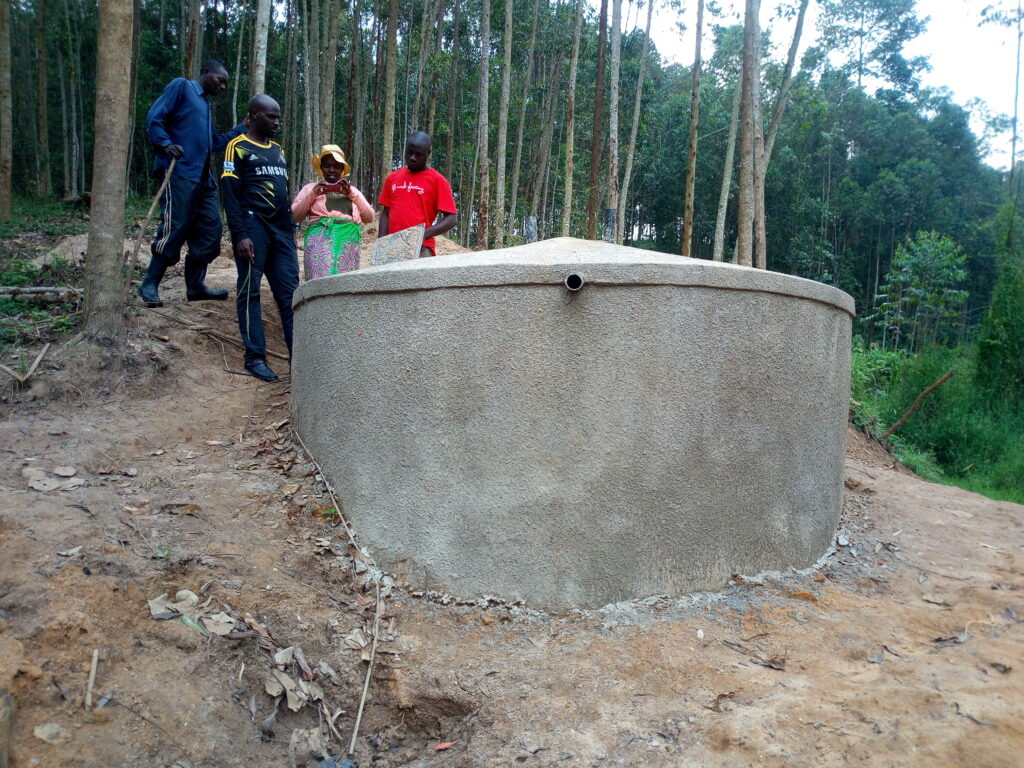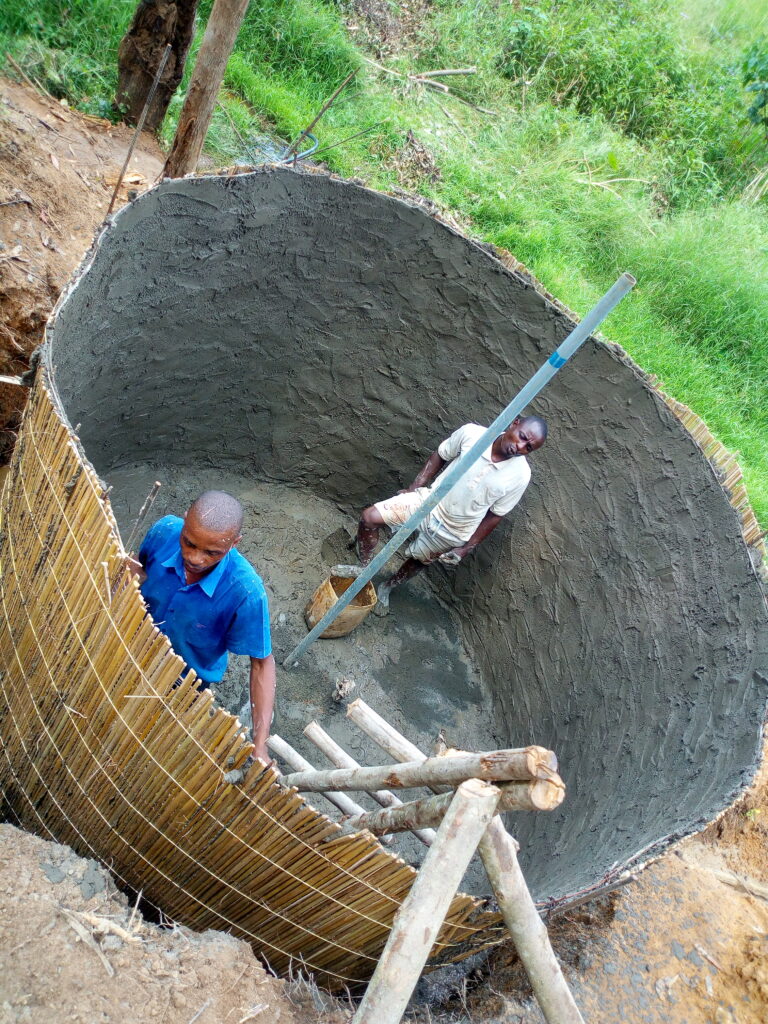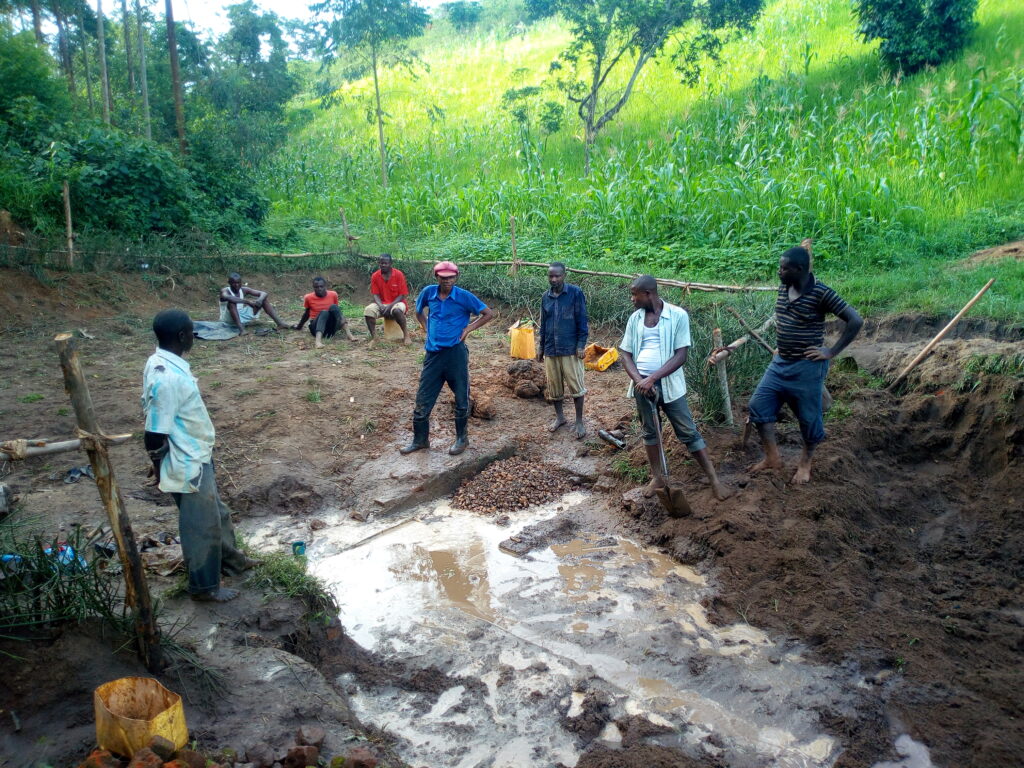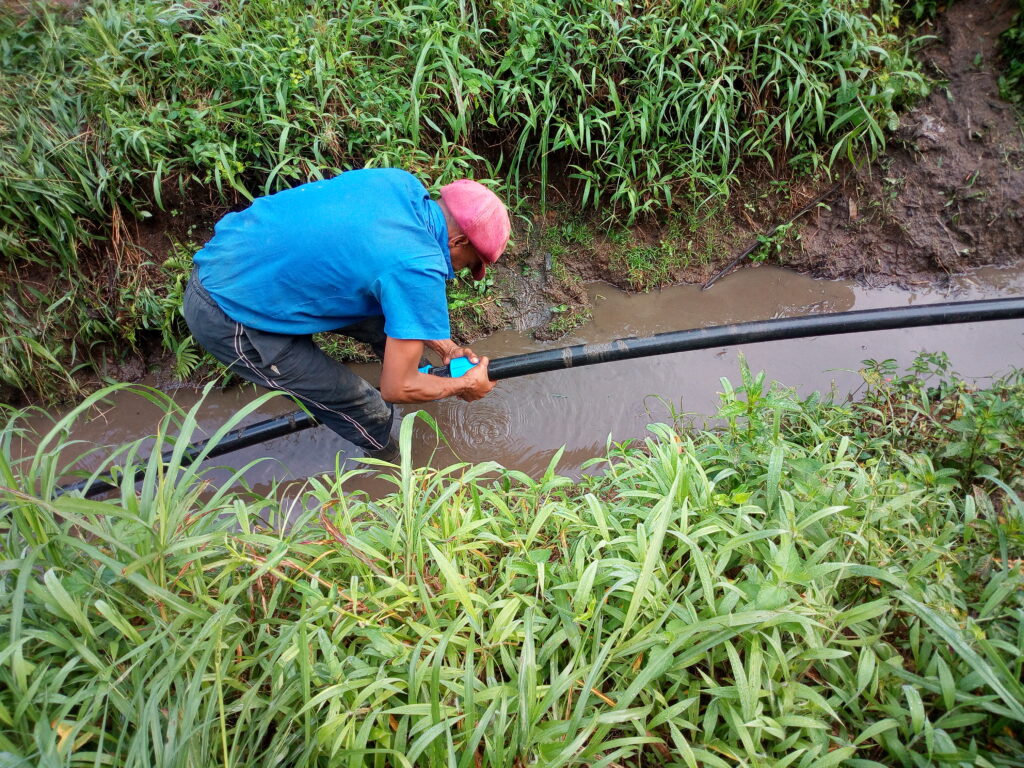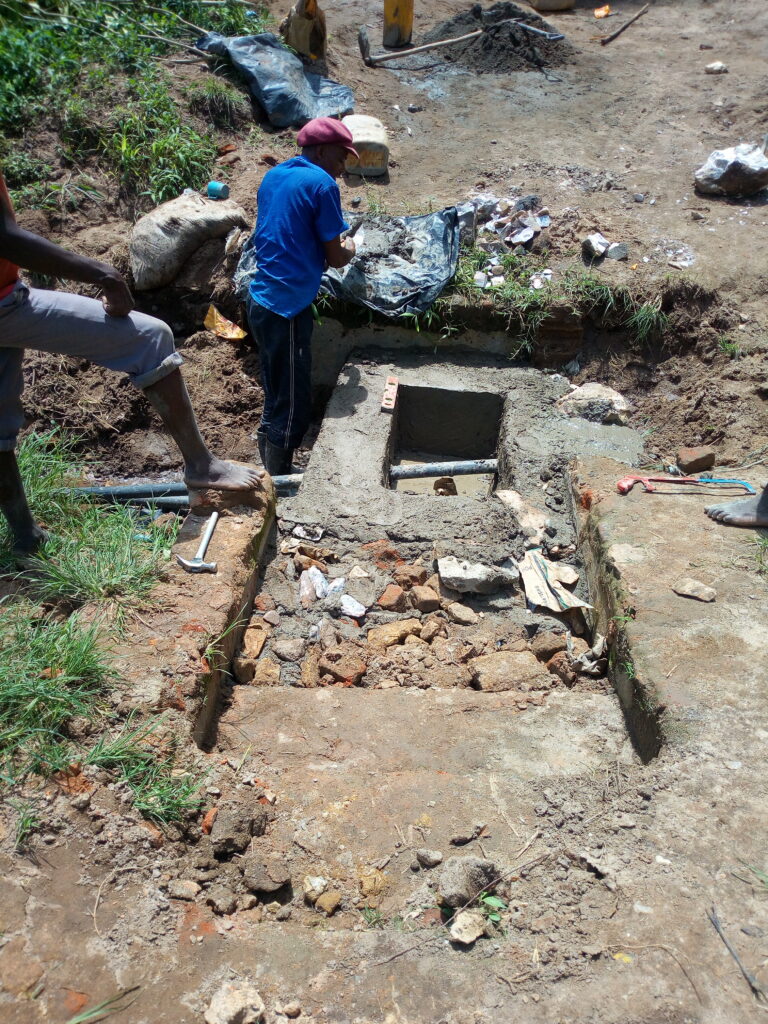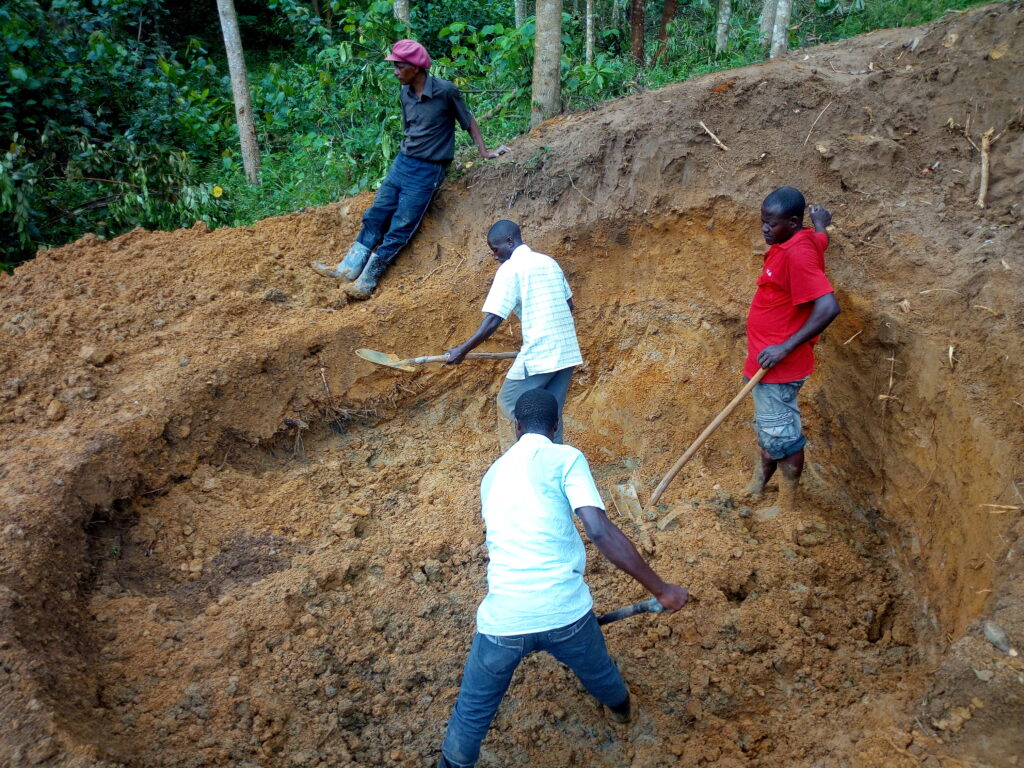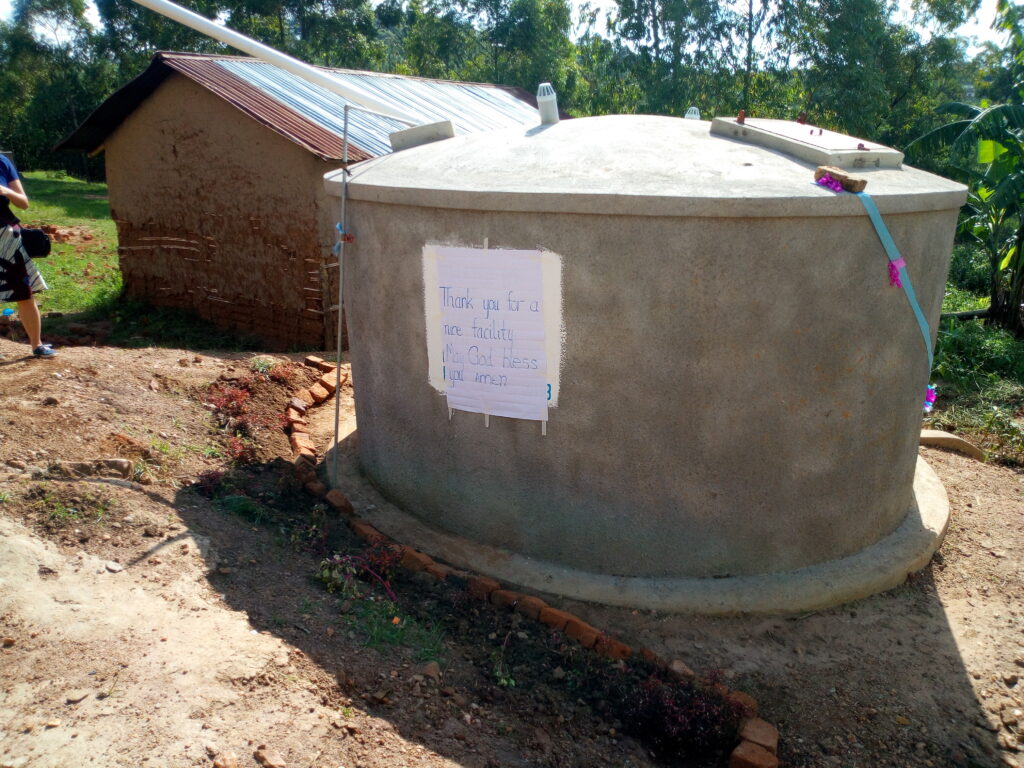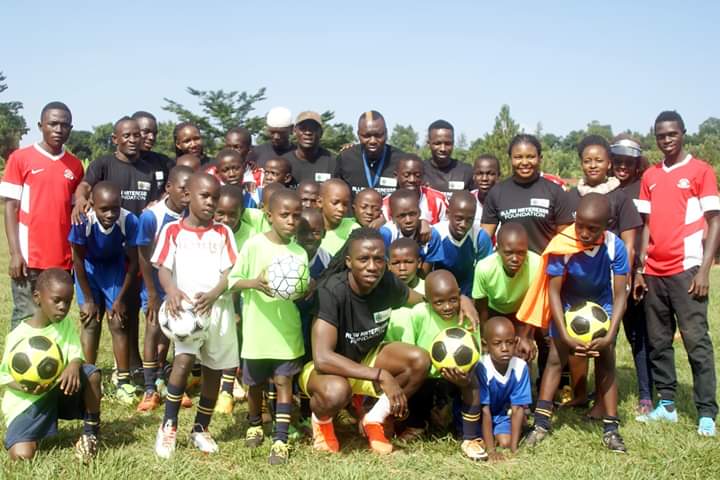Our approach focuses on individuals, groups, and networks that want or call to cooperate in order to achieve change at a local or community level. Adopting a community development approach means ensuring that the issues and priorities are identified and agreed by the communities themselves and that people are encouraged to work together towards a collective solution to a shared concern.
HICDEF’s development approach stand-in the following crucial aspects of community development:
- Informal Education: We involve the communities through direct participation in conducting sensitization and awareness sessions to the community members to come up with lasting solutions to the challenges that may rise up in the community.
- Collective Action: We promote uniting efforts, strengths, and determination; many people should act for their mutual benefit to protect the interests of the community members who are not able to stand up for themselves.
- Organized Community Engagement. This approach focuses on facilitating understanding, exchange of information to build social capital and enhance social outcomes through a decision-making process. These further promote social transformation that involves social struggles that can be a means to generate collective power for the powerless people.
- Self-help Groups for Community-driven development: We focus on the contribution of women, men, and youth in the community’s development. This is an economic community development approach that moves an emphasis from the activity of the central government to local communities. This is also an opportunity for adult education and social psychology development. It also aims at the increase of activity of the large groups of unemployed or semi-employed citizens, often with Lower Levels of Literacy (LLL). Through these groups, HICDEF finds a well-structured avenue to reach out to targeted beneficiaries in the specific community.
- Community Capacity Building for Sustainable Development. HICDEF is apprehensive about helping communities in obtaining, strengthening, and maintaining the ability to set and achieve their own development goals. This is aimed at achieving, in a balanced way, economic community development and environmental protection outcomes.
- Nonviolent direct action. This kind of action is aimed at revealing an existing problem, highlighting an alternative, and demonstrating a possible solution to an existing social problem. Community development is focused on the development of developing communities to increase the level of economic and social welfare of the community members.
- Community-based participatory research (CBPR) is an approach to the research that brings together the efforts of the community members and researchers in the research of the community life and problems. All the partners are expected to contribute the expertise, integrate, and share their knowledge to make the process of decision making easier and more effective.
These children are orphaned from such things as HIV/AIDS and conflict. We believe that every child deserves the opportunity to live a healthy, productive life, and there is nothing more life-changing than providing a young child with a family and education. We provide support to Child-headed families due to the death of caregivers/parents, and high levels of poverty with no one to care for them; many of these children suffer from hunger and malnutrition. We care for orphaned and vulnerable children by developing and sustaining family-style orphan villages. Providing care & support to orphans & vulnerable children by facilitating education scholastic materials, good nutrition, counseling, healthcare, income-generating activities & HIV/AIDS education. We work with guardians and school principals to ensure that our children have access to school even when caretakers are unable to provide school fees.
Rukungiri District is one of the most HIV/AIDS-affected districts in Uganda with a high number of needy orphans. Adequate Health care is not easily accessible and has high costs in this poor rural area; by the time patients have died, their caregivers, relatives, and their dependent children are destitute. Because of this and the stigma attached to AIDS, few people in this area can support orphans, whose numbers have grown. This project will support orphans by working through schools and communities. Schools and household feeding programs, scholarships and provision of school supplies, counseling, medical care, HIV prevention and care, micro-grants to orphans’ guardians to start businesses, and provision of basic domestic needs.
Orphans that are Well-nourished, learning & completing primary education, receiving appropriate health care, self-reliance, and ability to meet basic needs by Orphans’ guardians. Community acceptance of HIV/Aids orphans and reduction in HIV incidence is a ' Threefold Approach'; Health, Education, and Economic Empowerment to reducing HIV/AIDS deprivation, suffering, and prevalence. This program focuses on HIV/AIDS impact mitigation and prevention for HIV/AIDS-affected children and their families. The program supports medical care, nutrition; Kitchen gardening and soya booster with sugar, Educational materials, and home care items; Soap, Vaseline, blankets, Mattresses, and mosquito nets for the enrolled child and caregiver households, and beneficiary groups are mobilized into cluster groups for saving mobilization and enterprise development.
Functions and Relevance to the Community
The medical camps provide comprehensive health screenings, basic treatments, health education, and referrals for specialized care. They play a crucial role in:
Enhancing Access to Healthcare: By offering services within the community, the camps eliminate barriers such as long travel distances and high medical costs.
Promoting Preventive Care: Through sensitization sessions, communities learn about disease prevention, sanitation, and healthy practices, reducing the prevalence of preventable illnesses.
Strengthening Health Infrastructure: The camps complement local healthcare systems by addressing gaps and supporting overburdened facilities.
Special Focus on Child Health and Disabilities
One of HICDEF’s key priorities during these camps is the identification and support of children suffering from extreme malnutrition and disabilities, particularly those with spina bifida and hydrocephalus. These conditions, if untreated, can lead to severe complications or lifelong challenges.
HICDEF’s approach includes:
Early Diagnosis: Medical professionals assess and identify cases during the camps to enable timely intervention.
Referral and Support: Children diagnosed with these conditions are referred to specialized medical facilities for treatment and care. HICDEF works closely with families to provide logistical and emotional support during this process.
Advocacy and Awareness: By raising awareness about these conditions, HICDEF reduces stigma and encourages communities to seek timely medical assistance.
Impact and Community Relevance
The health program significantly improves the quality of life for rural populations, particularly vulnerable children and families. By addressing urgent health needs, preventing disease, and supporting specialized care, HICDEF’s medical camps foster healthier, more resilient communities. This initiative not only saves lives but also reinforces HICDEF’s commitment to sustainable community development and the well-being of every individual it serves.
2/3 children cannot afford primary education in Uganda. At the completion of the primary level, a child is equipped with basic knowledge and skills. Orphans and vulnerable children in disadvantaged communities are our target group. Supporting these children with scholastic materials and school fees will enable a child to stay in school and complete primary or even secondary education thus opening doors to a better-paid job and a way out of poverty. 150 children currently benefit from the program.
In Uganda, 2/3 of children drop out of school before completing their primary education due to the vicious cycle of poverty attributed to high levels of unemployment of their parents in the slum areas. Orphans, vulnerable children, and child-headed families often fall victim to these circumstances of illiteracy. With no access to education, the community is endangered with high levels of illiteracy that breed crime, unemployment, and poor living standards that will affect generations ahead.
Over 500 children living in abject poverty will be able to access education through sponsorship and provision of school fees and scholastic materials. Through continuous monitoring of the progress of a child's education, guidance to improve their performance, and make better career choices for a brighter future will be to the children.
With support, more than 500 children will access education thus eliminating poverty. Having an educated community conveys at least 60% of increased knowledge to create jobs and skills to perform in the employment sector. With a reduction in illiteracy levels, the unemployment gap will be depreciated. We believe that the education of children will elevate families from poor living standards to moderate standards of living and this effect will be spread to communities.
Education Sponsorship: You can make a difference in the life of a child through a one-time or monthly donation to our education program or by sponsoring a child. Your monthly contribution provides for things such as your child’s education, a meal at school, school supplies such as notebooks, pens, and pencils and basic needs for your child such as toothpaste, toothbrushes, soap, etc. Your child will also receive provision for any basic medical needs that arise and provides for the nursing staff that cares for the children. Above the basic needs, health care, and education your money goes towards vacation bible studies and mentoring programs for your child. Many receive the foundation for their faith as well as counseling, character building, and love from our staff in Uganda on various issues they may be facing in life.
For $45 a month you can sponsor a child to go to school in their neighborhood. Children in the regular sponsorship program receive an education, healthcare, emotional & spiritual development while still having the opportunity to live at home with their family. We take care of following the basic needs of the sponsored orphans. Subsistence (monthly ration, clothes, hygiene kits); Education (includes school fee, books, school supplies, and two uniforms); Health (includes medical checkups, immunization); Social upliftment (includes Extracurricular activities) last but not the least; Child Protection Rights (includes inheritance and family).
Skills Development and Establishment of a Skills Center in Bikurungu Town Council: HICDEF is committed to empowering youth and vulnerable populations through practical and market-driven skills training. The establishment of a Skills Development Center in Bikurungu Town Council will serve as a hub for vocational education, offering programs in tailoring, carpentry, masonry, welding, ICT, and entrepreneurship. The center will enhance employability and self-reliance by equipping individuals with the tools needed to succeed in competitive labor markets. This initiative aligns with HICDEF's broader goals of fostering community resilience and sustainable economic growth.
HICDEF is dedicated to empowering youth and women in rural communities by providing practical and market-driven skills training. Construction of the Skills Development Center in Bikurungu Town Council is currently 75% complete, thanks to funding from the New Africa Fund. Once operational, the center will serve as a vital hub for vocational education, addressing critical challenges such as youth unemployment, gender inequality, and economic vulnerability.
The center will offer diverse programs, including tailoring, carpentry, masonry, welding, ICT, and entrepreneurship, tailored to enhance employability and foster self-reliance. It will create opportunities for disadvantaged groups to acquire skills that meet the demands of competitive labor markets, enabling them to secure meaningful employment or start their businesses.
This initiative also aims to resolve persistent issues in the community, such as the lack of job opportunities for women and youth, by promoting inclusive development and reducing dependency. The center aligns with HICDEF's overarching mission to foster community resilience, empower vulnerable populations, and drive sustainable economic growth. With continued support, the Skills Development Center will become a cornerstone for transforming lives and building a brighter future for the region.
The school will provide not only learning space for 325 students year after year but also serve as a source of pride and a catalyst for change within the community. We will see roads built, gardens harvested, scholarships funded, teachers organized, and housing constructed - just to name a few - as a direct result of communities being empowered to help themselves. HICDEF provides communities with the resources they need to lift themselves out of poverty.
HICDEF initiated programs guaranteeing education to OVCs, yet are plagued with chronic classroom shortages as they lack the means to construct schools to meet the demand. This often results in students walking miles to get to a "school" in a neighboring community, scribbling their lessons in the dirt for lack of proper learning materials, or even gathering under a tree to learn.
Women play a key role in food production and form a large proportion of the agricultural workforce globally. Given equal resources, women could contribute much more. FAO estimates that if women farmers (43 percent of the agricultural labor force in developing countries) had the same access as men, agricultural output in 34 developing countries would rise by an estimated average of up to 4 percent.
Agriculture for Sustainable Development is a project of Women and Youth Empowerment for Sustainable Development on behalf of 140 unemployed and marginalized young people of affiliate youth groups/organizations. The Women and Youth Empowerment for Sustainable Agriculture project seek to create a network of young motivated farmers in an attempt to build more interest in the field of Agriculture, networking to address common challenges face by young farmers and discuss strategies and ways to develop and strengthen capacities of youth and young farmers.
HICDEF aims to increase agricultural production for household food and incomes through programs promoting improved agricultural methods, business skills, and market access. Our programming helps smallholder farmers build resilience to the shocks and stresses of climate change by promoting ecological approaches to agriculture as well as diversification.
For those who do not grow their own food, income is a key determinant in acquiring adequate nutrition. Through business training, we help individuals increase their earning potential and thus their consistent access to food.
The main goal of the project is to contribute to Government efforts to achieve rapid economic growth and poverty reduction. The specific objective is to increase access and participation of the poor, particularly women in rural areas to appropriate microfinance services.
Since close to 90 percent of the poor live in rural areas, they will form the main target population of the project. Rural women will be the primary target group where total project clients and investment shall not be less than 60%. Female-headed households, widows, youth, orphans, and the disabled will be given high priority.
Currently, HICDEF runs different Village Saving and Loan Associations (VSLAs). VSLAs provide simple savings and loan facilities, in communities that do not have access to formal financial services. This helps them create a social fund, kept separate from the loan fund, provides small grants for emergency assistance such as School fees, agriculture, Health Insurance, and funeral expenses.
HICDEF conducts training to VSLAs that target: I) to teach VSLA members on developing business plans, profit and loss, marketing, and keeping records which will enable them independently manage their businesses. II) Facilitate the development of specific business plans for each VSLA group and produce a plan that can be easily understood and implemented by the members. III) Expose the members to the procedures and regulations that must be upheld to result in a successful. IV) Enhance their skills in VSLA engagement. V) Build the competence and need for commitment in VSLA
participation. VII) Expose them to the various knowledge and skills in ensuring sustainable business initiatives.
HICDEF's water, sanitation, and hygiene (WASH) team in over 350 households in Bikurungu and Bwambara Sub County to improve water and sanitation services, as well as basic hygiene practices. For the last few years, HICDEF's efforts provided nearly 2000 people with safe and clean water.
HICDEF's water andsanitation programs help communities obtain adequate supplies of safe water and sanitation facilities for improved access to safe water through the construction of a 20,000-liter underground concrete tank. Building rainwater harvest tanks and constructing shallow wells in our communities, using our already-established Community Constructed Shallow Well Program (CCSW). Through our CCSW, we work in partnership with the District Water Office, which donates well parts, and the villagers themselves, who donate the land, do the digging and provide food and shelter for the mason who lives in the village during the whole process.
We educate our village communities about the importance of household hygiene, personal hygiene, and sanitation through outreach. We also have partnerships with local schools, encouraging children to adopt personal habits of hygiene and to help their schools and their families adopt small sanitation measures like having ‘tippy-taps’ outside of latrines. Tippy taps are locally constructed handwashing stations that make it easy for people to follow good hygiene practices.
We teach about the importance of safe water, we hold village outreaches about the importance of gathering water from clean water sources (even if it means a longer walk to the source), and the importance of treating or at least boiling water intended for consumption. We also educate villagers about the nature and danger of water-borne diseases contracted by drinking contaminated water. At times we bring in local community-based organizations (CBOs) to do educational performances or outreaches about safe water, similar to the CBO performances given on HIV/AIDs or malaria.
Throughout the years that we have worked in a village, HICDEF continues to facilitate safe water outreaches. Village Health Teams also sensitize the community about the dangers of contaminated water, and how to best treat water for consumption.
Important: The power of clean water, sanitation, and hygiene (WASH) programs opens the door to community transformation. We engage with faith communities to help ensure that the most vulnerable people benefit from improvements in water, sanitation, and hygiene. And thus:
More time for family, education, and livelihoods: Women have more time to nurture their children and take part in income-producing work. Children have more time to attend school, enabling them to realize their full potential.
Improved food security and nutrition: Livestock production increases, providing a valuable source of nutrients for hungry children. Garden plots and backyard gardens can flourish all year round.
Better health and safety: Medical facilities are improved, enabling basic services such as child delivery in hygienic conditions, Increased use of proper sanitation facilities allows for better environmental hygiene, Equitably accessible sanitation can give women and girls greater privacy and safety, Healthy hygiene behaviors keep children safe from disease and the risk of infection and Women and children are protected from injury and violence since they no longer need to walk long distances for water.
as it strives to overcome discrimination, improve health and combat disease, promote gender equality, fight violence, and secure environmental sustainability. Thus, the project contributes actively and sustainably to achieving the Millennium Development Goals. This fosters youth development and peace with the emphasis on mutual understanding, fairness, and tolerance, using football as a catalyst. To reach this target, HICDEF supports existing youth development initiatives and assists in establishing new ones in up to 10 parishes of Bwambara Sub County and Bikurungu Town Council. It combines football education and training with development measures for thousands of young people. Just like in any other region of the world, girls and boys from disadvantaged communities face complex problems in Bwambara, Bikurungu, and Rukungiri at large. They often come from difficult social backgrounds with many families living below the poverty threshold. Due to poor education, many youths lack skills making it difficult for them to find employment. They are exposed to health risks, alcoholism, and drugs. Girls and young women especially face violence and crime, more than a few are discriminated against and excluded from social life. This is where HICDEFs Youth Development through Football (YDF) comes into play.
HICDEF is promoting an initiative called Increased Access to Renewable Energy for Light and Cleaning Cooking. This initiative is being implemented in partnership with Kiima Foods a local CBO from Kasese and we are working hard to improve people’s access to sustainable renewable energy. Energy access is an area of great inequity. The Need for Clean Cooking Solutions Although one in five people on the planet lack access to modern electricity, two in five, or nearly three billion people, rely on wood, coal, charcoal, and animal waste for cooking or heating. Therefore, addressing the use of open fires and traditional cookstoves and fuels is one of the world's most pressing health and environmental problems, disproportionately affecting women and children. Replacing traditional fireplaces with cleaner fuels and more energy-efficient cooking solutions can reduce smoke emissions, provide cost savings, and reduce the time and resources needed to procure fuel.
Access to sustainable modern energy services underpins health, education, and livelihoods and increases resilience to climate change – yet millions of people have no access to electricity and use dangerous and unhealthy fuels for lighting and cooking. Progress in electrification needs to advance four times faster if the world is to meet 2030 objectives. The global access rate needs to rise from the 2012-14 rate of 0.19 percent to 0.92 percent a year from 2015-30. Researches the potential of initiatives to improve people’s access to sustainable energy to promote socio-economic development and reduce poverty. Adapting initiatives to specific social, cultural, and political contexts, learning from successful experiences, and scaling up successful pilot projects are all key challenges facing access to energy projects. An in-depth case-study analysis of projects and country contexts allows us to explore how to overcome these challenges.
Our approach is to build an evidence base for advocacy work with government, business, and civil society. Developing this kind of evidence also facilitates advocacy in the policy arena and catalyzes change in policy and practice. By building dialogue and problem-solving capacities among stakeholders promoting good practice, and learning from failure we seek to stimulate the replication and scaling up of effective technologies and approaches. This is being achieved through the supply of improved cookstoves and low-cost solar panels to the interested community members.
Climate-Resilient and Climate-Smart Agriculture: To address the challenges of climate change, HICDEF promotes climate-resilient and climate-smart agricultural practices among rural farming communities. These practices include conservation agriculture, agroforestry, crop diversification, and water harvesting technologies to enhance productivity while conserving natural resources. Training programs focus on sustainable soil management, integrated pest control, and the adoption of drought-resistant crop varieties. By improving food security and reducing vulnerability to climate shocks, this program supports long-term agricultural sustainability and rural livelihoods.
Carbon Farming: HICDEF champions carbon farming as a dual solution to combat climate change and improve rural incomes. This involves promoting practices such as agroforestry, reforestation, and sustainable land management to increase carbon sequestration in soils and vegetation. Farmers participating in this program are educated on the benefits of carbon credits, enabling them to earn additional income through carbon offset programs. Carbon farming not only mitigates greenhouse gas emissions but also enriches soil fertility, enhances biodiversity, and supports the global fight against climate change.
ORPHANS AND VULNERABLE CHILDREN CARE & SUPPORT: Orphaned and Vulnerable Children, These children are orphaned from such things as HIV/AIDS and conflict. We believe that every child deserves the opportunity to live a healthy, productive life, and there is nothing more life-changing than providing a young child with a family and education. We provide support to Child headed families due to the death of caregivers/parents, high levels of poverty with no one to care for them; many of these children suffer from hunger and malnutrition. We care for orphaned and vulnerable children by developing and sustaining family-style orphan villages. Providing care & support to orphans & vulnerable children by facilitating education scholastic materials, good nutrition, counseling, healthcare, income-generating activities & HIV/AIDS education. We work with guardians and school principals to ensure that our children have access to school even when caretakers are unable to provide school fees.
Rukungiri District is one of the most HIV/AIDS affected districts in Uganda with a high number of needy orphans. Adequate Health care is not easily accessible and has high costs in this poor rural area; by the time patients have died, their caregivers, relatives, and their dependent children are destitute. Because of this and the stigma attached to AIDS, few people in this area are able to support orphans, whose numbers have grown. This project will support orphans by working through schools and communities. Schools and household feeding programs, scholarships and provision of school supplies, counseling, medical care, on HIV prevention and care, give micro-grants to orphans’ guardians to start businesses and provision of basic domestic needs.
Orphans that are Well-nourished, learning & completing primary education, receiving appropriate health care, self-reliance, and ability to meet basic needs by Orphans’ guardians. Community acceptance of HIV/Aids orphans and reduction in HIV incidence and this is a ' Threefold Approach'; Health, Education, and Economic Empowerment to reducing HIV/AIDS deprivation, suffering, and prevalence. This program is focusing on HIV/AIDS impact mitigation and prevention to HIV/AIDS affected children and their families. The program supports medical care, nutrition; Kitchen gardening and soya booster with sugar, Educational materials, and home care items; Soap, Vaseline, blankets, Mattresses, mosquito nets for the enrolled child and caregiver households, and beneficiary groups are mobilized into cluster groups for saving mobilization and enterprise development.
2/3 children cannot afford primary education in Uganda. At the completion of the primary level, a child is equipped with basic knowledge and skills. Orphans and vulnerable children in disadvantaged communities are our target group. Supporting these children with scholastic materials and school fees will enable a child to stay in school and complete primary or even secondary education thus opening doors to a better-paid job and a way out of poverty. 150 children currently benefit from the program.
In Uganda, 2/3 of children drop out of school before completing their primary education due to the vicious cycle of poverty attributed to high levels of unemployment of their parents in the slum areas. Orphans, vulnerable children, and child-headed families often fall victim to these circumstances of illiteracy. With no access to education, the community is endangered with high levels of illiteracy that breed crime, unemployment, and poor living standards that will affect generations ahead.
Over 500 children living in abject poverty will be able to access education through sponsorship and provision of school fees and scholastic materials. Through continuous monitoring of the progress of a child's education, guidance to improve their performance, and make better career choices for a brighter future will be to the children.
With support, more than 500 children will access education thus eliminating poverty. Having an educated community conveys at least 60% of increased knowledge to create jobs and skills to perform in the employment sector. With a reduction in illiteracy levels, the unemployment gap will be depreciated. We believe that the education of children will elevate families from poor living standards to moderate standards of living and this effect will be spread to communities.
Education Sponsorship: You can make a difference in the life of a child through a one-time or monthly donation to our education program or by sponsoring a child. Your monthly contribution provides for things such as your child’s education, a meal at school, school supplies such as notebooks, pens, and pencils and basic needs for your child such as toothpaste, toothbrushes, soap, etc. Your child will also receive provision for any basic medical needs that arise and provides for the nursing staff that cares for the children. Above the basic needs, health care, and education your money goes towards vacation bible studies and mentoring programs for your child. Many receive the foundation for their faith as well as counseling, character building, and love from our staff in Uganda on various issues they may be facing in life.
For $45 a month you can sponsor a child to go to school in their neighborhood. Children in the regular sponsorship program receive an education, healthcare, emotional & spiritual development while still having the opportunity to live at home with their family. We take care of following the basic needs of the sponsored orphans. Subsistence (monthly ration, clothes, hygiene kits); Education (includes school fee, books, school supplies, and two uniforms); Health (includes medical checkups, immunization); Social upliftment (includes Extracurricular activities) last but not the least; Child Protection Rights (includes inheritance and family).
